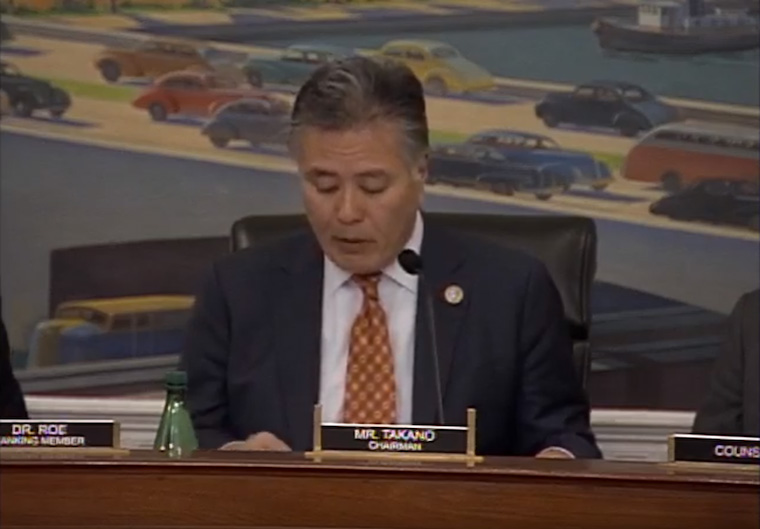Chairman Takano Delivers Opening Remarks At First Committee Hearing Examining “VA 2030” and Future of VA
WASHINGTON, DC – Today, House Committee on Veterans’ Affairs Chairman Mark Takano (CA-41) delivered opening remarks before the first Full Committee Hearing entitled “VA2030: A Vision for the Future of the VA”. Below is a link to the video of the Chairman’s opening statement and his remarks as prepared:
Watch opening remarks here
Mr. Secretary, thank you for joining us today. I truly appreciate your commitment to your job and to our veterans while you are recovering from foot surgery. Out of respect and sympathy for you, I will move this hearing along as quickly as possible so you can get back to following your doctor’s orders: to rest and elevate your foot.
I will strictly adhere to the five minute rule for each member. Please be cognizant of how much time you have and if you think you might go over, submit your additional questions for the record. Thank you.
What I hope to get out of this hearing is to lay the groundwork for a long-term vision for the future of VA. We all know what we need to do over the next year or two to keep VA functioning, but our aspirational goal should be to envision the perfect VA system and strive toward that.
By now, I’m sure most of you have heard me use the phrase “VA 2030.” This is the term I’ll use when describing my vision of VA.
My vision is twofold: VA must be a system that is easy to navigate – easy to enter with logical responses as veterans’ needs change or new needs arise.
The second part of my vision is that VA catches up to the changing and new demographics of veterans, and be nimble enough to adapt and respond as those demographics change.
I often use VA’s long-term care programs as an example of VA 2030. Today, there are countless resources to receive assistive care, which is great for veterans. Unfortunately, there are countless ways in which veterans can access those services. This makes it confusing for veterans and their loved ones to find the right program to meet their needs.
In a perfect world, veterans seeking assistance - whether it’s with cleaning their house or mowing their lawn or those with greater needs for full time care in a long-term facility – should have a single point of entry that evaluates their needs and eligibility for services so veterans and their families can make decisions that are right for them. As veterans age and their needs change, the care and services provided should adapt to veterans’ needs –requiring little effort from the veterans and their families.
Using this model, we should be able to remove redundant programs and find gaps in service while making it easier to navigate VA’s services.
In the same vein, we must evaluate VA’s programs and services to better serve women veterans, the LGBTQ community, and minority veterans.
With this vision in mind, Ms. Brownley developed the idea and framework for the Women Veterans’ Taskforce. This taskforce will examine the current services that are specific to women veterans to see if there is room for improvement. It will also look at programs and services that are meant to serve all veterans, but might need adjustments to better serve women, like prosthetics and mental health care treatments.
This forward-looking process will take trust and a commitment from all involved to work, but we have proven that we have the ability to do it.
VA, Congress and the VSOs all worked together to improve the appeals process. Four years ago the appeals backlog was enormous and growing. Veterans waited months and years for an answer. Today, thanks to bipartisan cooperation and full involvement with stakeholders, there is a far more efficient process where veterans have the ability to choose which appeal lane works best for them.
This model is working to produce more timely decisions that veterans and VSOs are reporting as a large step in the right direction. For the first time in many years, we have a realistic grasp on eliminating the appeals backlog.
Mr. Secretary, we have done it before, we can do it again. I look forward to hearing from you on the areas in which we can quickly make meaningful changes, and also areas that might take time, like appeals modernization. I also look forward to working with Ranking Member Roe and the rest of my colleagues on the Committee to make sure we meet the audacious goal of VA 2030.
With that, I yield 5 minutes to my friend Dr. Roe.
###
Next Article Previous Article

